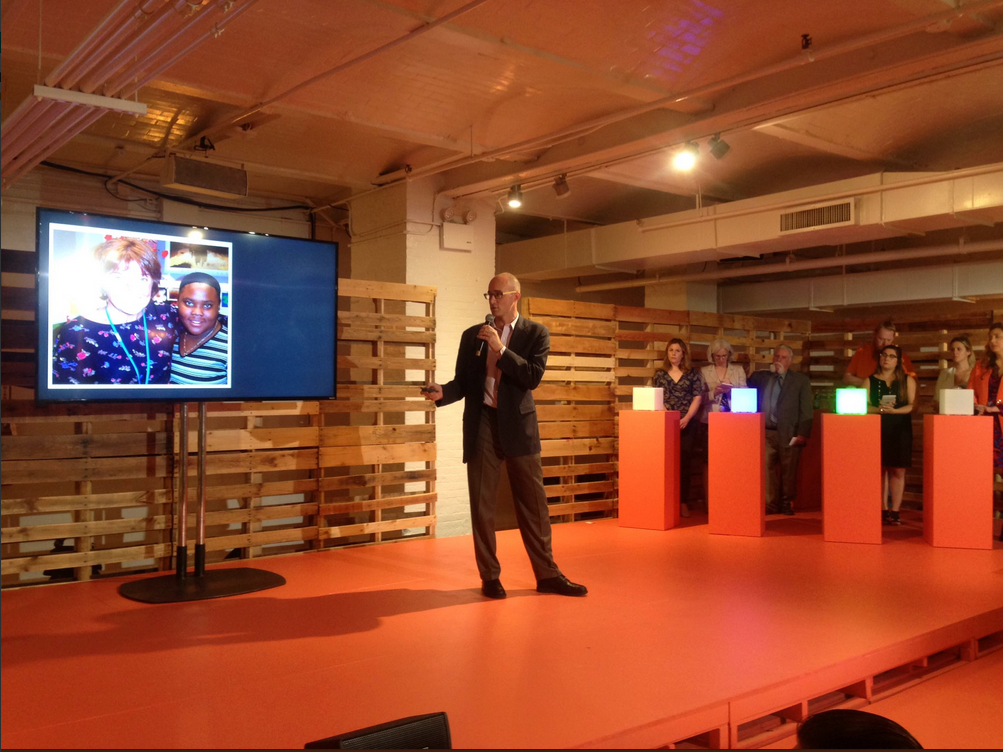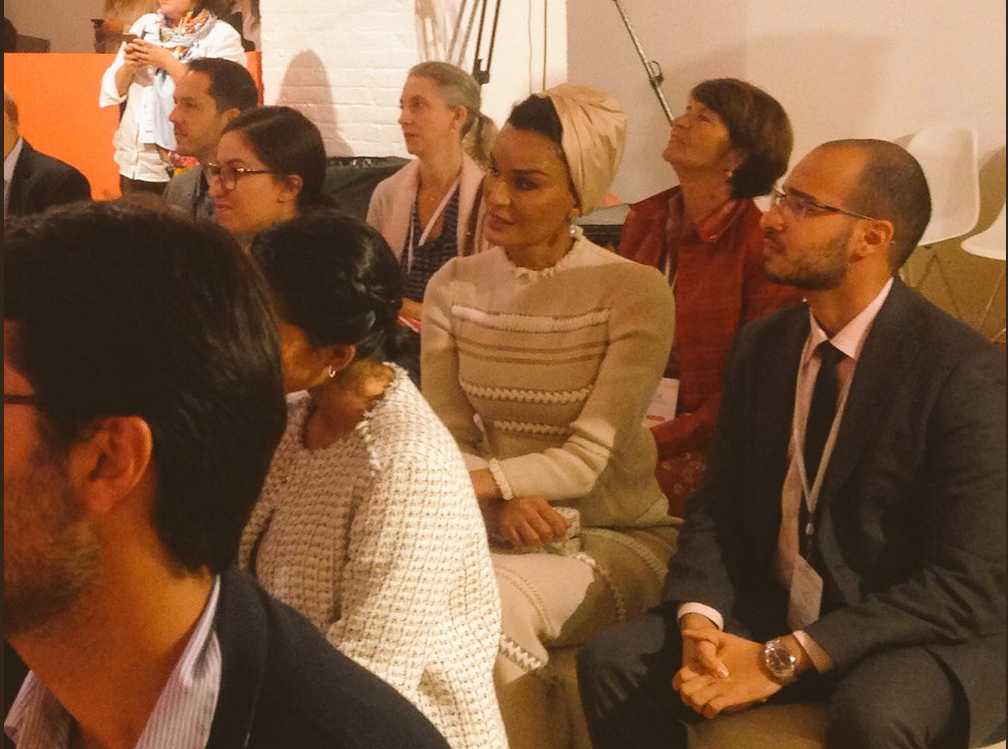
Sparknews’ Sparkshow has gathered much attentions at NYC’s WISE summit on September 22nd.
French playwright Victor Hugo said that “He who opens a school closes a prison gate”. Had he lived today, he would have tweeted that each time one launches an EdTech app they might be potentially saving a life.
Hosted by author Jordan Shapiro, the World Innovation Summit for Education (WISE) is a reference in matters of new approaches to education – a multisectoral platform for creative thinking, debate, and concerted action, lead by Her Highness the Sheikha Mozah Bint Nasser of Qatar since 2009.
During the event, nine social entrepreneurs had three minutes each to pitch their projects in front of a panel of eight renowned journalists (Steven W. Anderson, Christie Smythe, Julie Baumgardner, Gregg Toppo, Keshia Clukey, Stacy Teicher Khadaroo,Tom Whitby, Salima Yacoubi Soussane) who came from all over the world to Sparknews’ Sparkshow #EducationForAll. The concept: discovering innovative solutions and actors of change in the field of education, as well as good stories to cover.
According to Voices of Youth, about 103 million youngsters in the world are illiterate. This event aimed at studying the significant educational challenges of our times but also spotlight projects trying to tackle them. Then nine innovations from France, Nigeria, the UK, and the US came on stage. The program included e-learning, online platforms for scholarships, documentaries and above all… deeply human project leaders. Here is a quick presentation of their innovations.

Firstly, Andrew Frishman, Big Picture Learning’s co-executive director, has presented IMBlaze, a research tool for students, educators and administrative staff. It helps students to find an internship based on their interests and geographic position. IMBlaze gathers about 50,000 internship offers. As for schools and universities, they can monitor the research and internship process through the platform.
Satisfying schooling involves adequate funding. In Africa though, education is not a given but a luxury. This is why Bola Lawal has launched ScholarX, an app for Androids and iOS to micro-finance scholarships congruent with the users’ studies. The platform has already helped 15,000 students benefitting from a scholarship.
Chemics Nobel prize Venkatraman Ramakrishnan said that “Science is curiosity, testing and experimenting”. Unfortunately, not everybody has Dexter’s lab handy. But it shouldn’t discourage anyone to have an interest in Science. Smart Science is a low-cost virtual laboratory, available on every HTML5. Users can lead real-time experiences, draft written records, find videos, prior information to educate students as well as videos and quizzes. The automatized translation system enables written reports to be available in over a hundred languages. 300 schools already have tested it.

Picture yourself stuck in an area with a shaky internet connection and not much electricity. Potenzmittel rezeptfrei. You could hardly access information. NGO Lebanese Alternative Learning has launched Tabshoura-in-a-box, a low-cost educational server for isolated populations and refugees. 2750 students already have benefited from it. Contents are elaborated with local teachers and follow a sound learning logic. The box is a small server that can hotspot up to 30 computers. An ideal solution for isolated communities.
“In France, 60% of students quit their studies after the first year of university for three reasons: inequality in accessing information, lack of network and lack of commitment£, Pixis founder Borna Sconamiglio told the panel of journalists. To address these lacks, Mr. Sornamiglio has conceived Pixis with Aloïs Gaborit as a tool to orient youngsters to future crafts. Those we don’t know about yet. On their website, “the power of technology meets the human dimension” to enlighten young minds about the job they might have ten years from now.
Jo Harding pitched Doc Academy, a project aimed at assisting teachers in presenting the best documentaries in the classroom. The principle is simple. The teacher creates an account and can choose among a hundred documentaries to download. Pupils seem to respond positively, and 25% of elementary schools have tested Doc Academy in the United-Kingdom. Recently available in the United-States, 98% of its American users claimed they would use it again.
From documentary reality to virtual reality, there’s sometimes merely one step. Uptaleenables its users to create their own immersive experiences in a few clicks and without coding. No need to be a programmer anymore. The VR spectacularly helps information retention, Danone and L’Oréal, among others have chosen this educational solution in the context of their companies’ activities. VR experiences – such as places visits, for instance, are compatible with VR any headset. And to evaluate, the potential and the limits of their programs, the learners’ progress are quantified.
Charlemagne used to say that mastering a second language meant to acquire a second soul. In this learning process though, nothing compares to the interaction with a native speaker. Mursal Hedayat pitched Chatterbox,a linguistic online and offline program, conveived for schools, individuals, universities and companies. Chatterboxcanalizes the academic potential of refugees in the market of languages, putting them in touch with over 400 pupils and teachers in the UK.
Try to imagine a cloud platform supplying e-learning classes for professionals of the industry or biotechnologies, bioengineering, MedTech, biopharmacy scholars. That platform does exist and it is called CambioScience. Its classes are aired live from the most prestigious universities worldwide following a calendar that’s available on the website and taught by top professors in each field. Nonetheless… it’s for free!
By age 30, the most educated among us have a 6-years-longer life expectancy than their less educated peers, according to the OECD. One more reason to back the democratization of education and to wish these EdTech wizards good luck with their projects.




